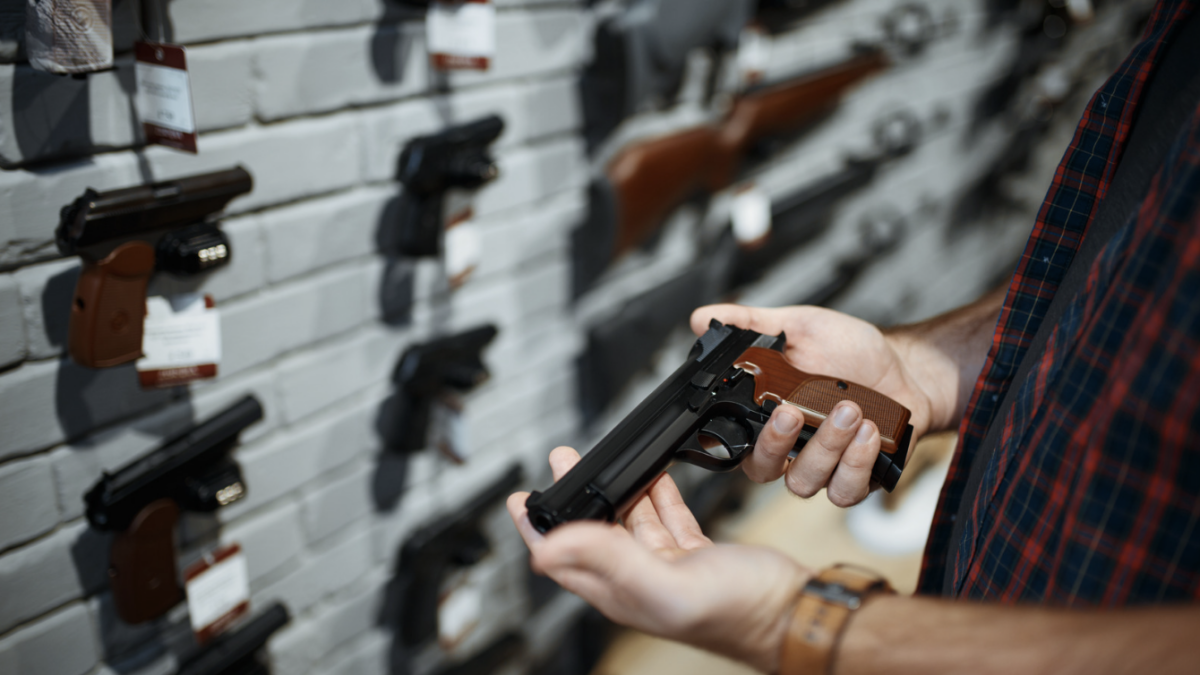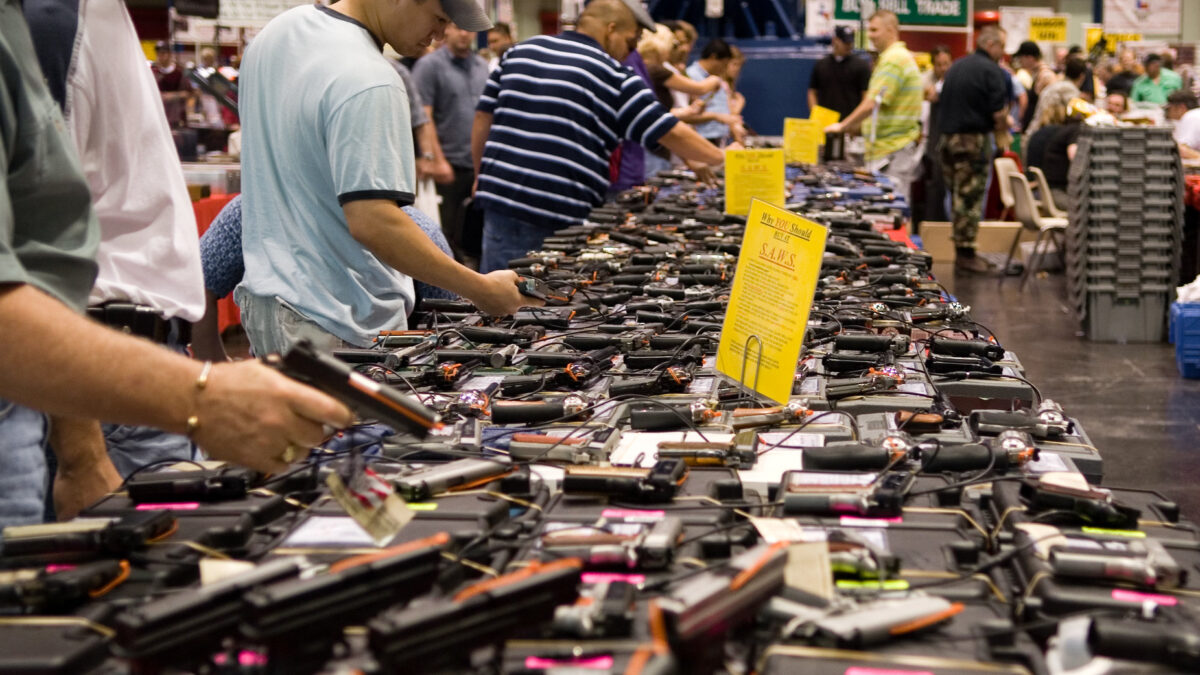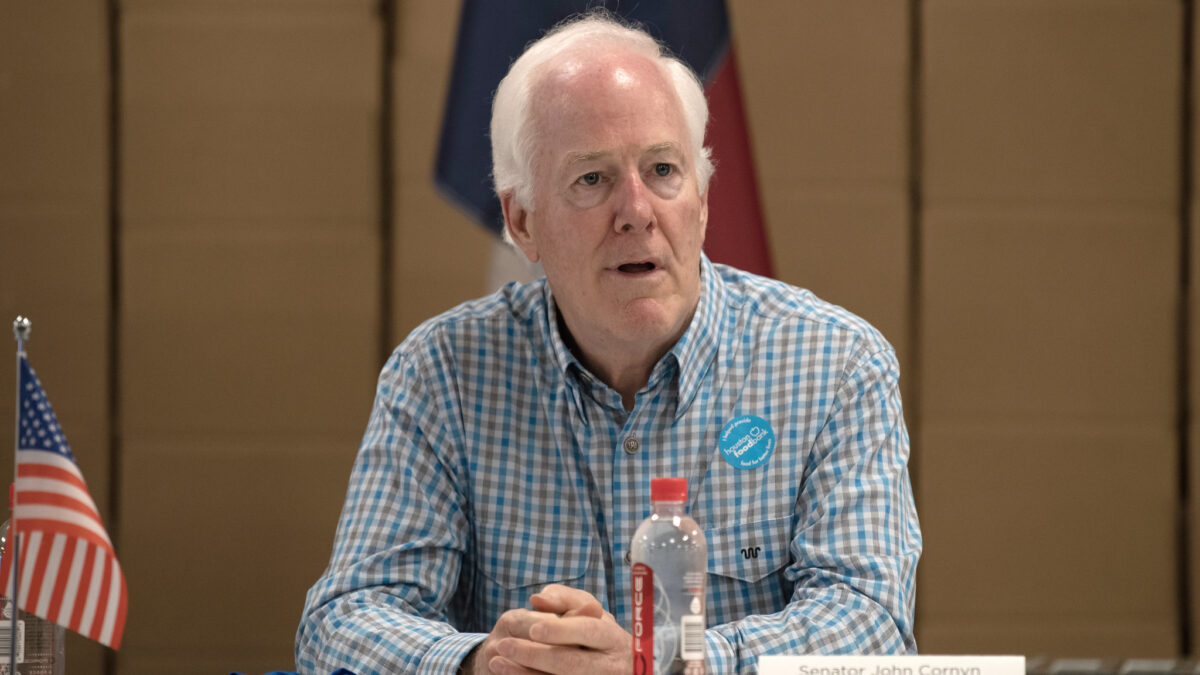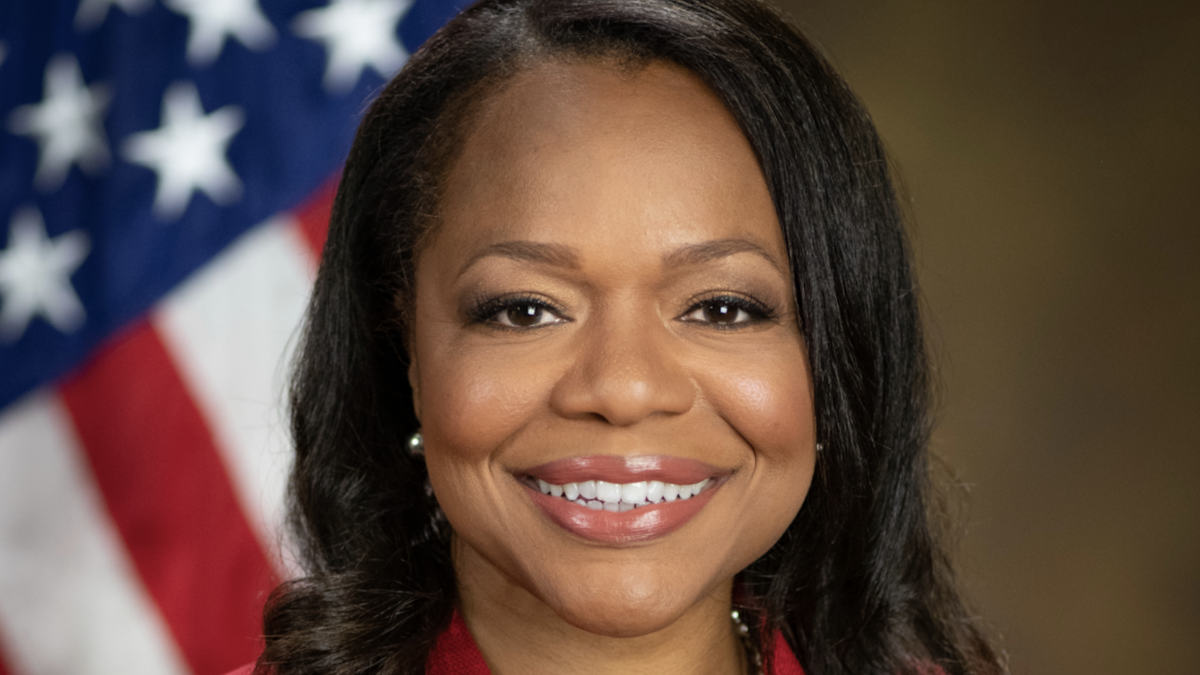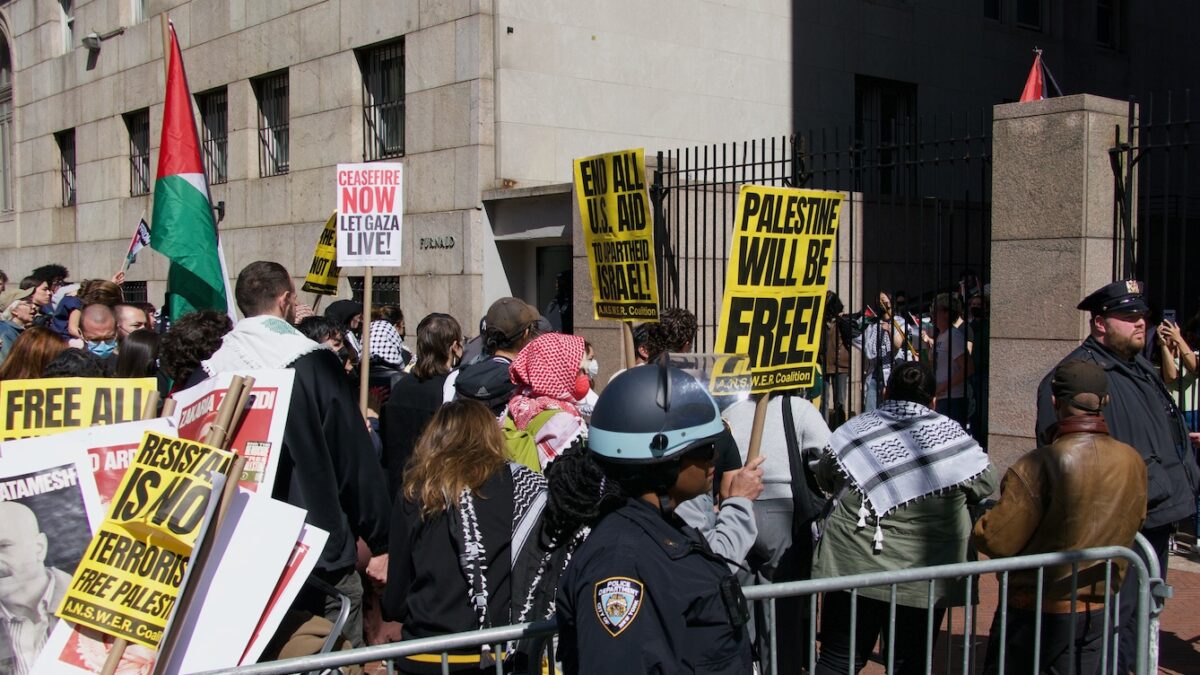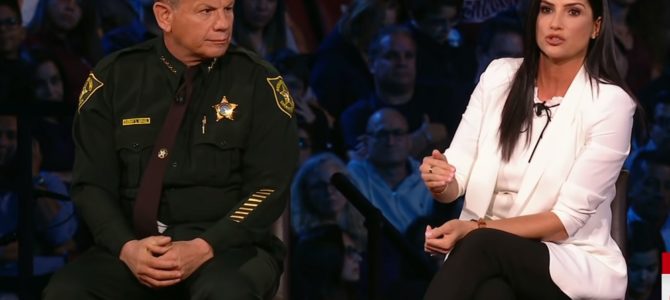
Excerpted from “Grace Canceled: How Outrage is Destroying Lives, Ending Debate, and Endangering Democracy,” by Dana Loesch (Regnery, 2020). Out February 25.
I knew what I was walking into. I got word on a Tuesday that I was to be in Parkland, Florida, the following evening to participate in a CNN-hosted town hall featuring survivors of the massacre at Marjory Stoneman Douglas High School, their families, and area residents. It was not my choice to go, but members of the National Rifle Association and countless others—most of them parents themselves—were worried about how CNN would depict law-abiding gun owners and wanted someone to represent us.
My flight took off in the middle of a thunderstorm. The plane bobbed and weaved among the thick gray clouds as it clawed to thirty thousand feet. I looked out of the window and prayed. That was the extent of my prep: I spent the entire two-and-a-half-hour flight in a deep, uncompromising prayer. I knew I was going from one storm straight into another, where wounds were fresh and hearts were shattered.
CNN treated the town hall as if it were a professional wrestling match. I was once a CNN contributor, and I think highly of many people there, but I had a feeling I was being ambushed. The producers, one of whom I’d known for years, were kind and preemptively apologetic. I think there was genuine worry that I wouldn’t appear on the stage. When we got to the venue, I was led to a private greenroom (everyone who would be on stage had his own). The producers briefed me on what would happen, and I learned that I would be seated next to Sheriff Scott Israel of Broward County. So I was to be pitted against a representative of law enforcement officers, who traditionally support the NRA. I assumed that this sheriff, whom I had never met, would be hostile. He showed up flanked by producers, with a coterie of deputies several paces behind him. I walked out into the hall and introduced myself, hoping to get a sense of his disposition toward me.
“Sheriff, my name is Dana Loesch. I want you to know that I am praying for this community and for your and your deputies’ guidance,” I said with complete sincerity.
Israel was taken aback. Putting out his hand he responded, “Thank you so much. Great to meet you. You know, no hard feelings at all, none at all.”
“Yes,” I replied slowly, somewhat bewildered. “I understand we are to be on stage together. I hope we can have a good discussion. Nice to meet you, Sheriff.”
“Oh absolutely,” he replied. “I’ll see you up there.”
In that brief meeting, the sheriff had shown me his cards. He was planning to lay the blame for the Parkland massacre at my feet. Minutes later, CNN allowed him to take the stage and address the crowded auditorium. He laid into the NRA and referred to me as the “NRA lady,” spending a good twenty minutes electioneering and stirring up a crowd whose emotions were already raw. This was the opening act.
Meanwhile, Jake Tapper entered my room to say hello. I’ve known Jake for several years and find him to be fairer than most because he, unlike others, makes the effort. He and I seemed to realize something simultaneously, unspoken: The night wasn’t about winning a debate. It was about simply holding the line. For me, it was about holding the line for constitutional rights despite being a punching bag for the audience. For him, it was about holding down a broadcast for an hour. Jake intimated that there was already no hope of controlling the crowd that had amassed in the arena. After he left, Jeff Zucker, the president of CNN, stopped by briefly. He thanked me for being there and returned to the hallway for more photos. The mood backstage was incongruous with the pain being amplified in the arena for ratings.
We watched on the television in the greenroom as the program began. Senator Marco Rubio was on first with Senator Bill Nelson and Congressman Ted Deutch, who was intent on testing the limits of civility. Rubio was backed into a corner, inch by inch, before he finally invoked certain long-held truths regarding gun rights. It was a difficult spot for an elected official. If he didn’t cave in, he’d be called insensitive. If he did, he’d be blasted by constituents worried about losing their right of self- defense. I knew that if Rubio folded it would be harder for me. He lost control of the room; Tapper lost control of the audience. CNN had no control over anything, and that’s just how they wanted it.
People were yelling at me before I even walked into the arena. A production assistant nudged me, my cue to walk to the stage, which was set up like a boxing ring without ropes in the middle of the arena. The booing and hissing followed me all the way down the aisle.
“Murderer!” screamed one woman.
“Hateful bitch!” screamed a man.
Keeping a pleasant expression on my face, I did not look at the ground or the ceiling but looked everyone in the eye. I was not afraid, for I had done nothing wrong. I figured that at some point I would be hit or spat on.
As I approached the rollaway stairs that gave access to the stage, a teenage boy appeared to my right. I don’t know what I expected, but I didn’t expect him to smile.
“Mrs. Loesch! Mrs. Loesch!” he yelled. I stopped. “Mrs. Loesch, you have to stop them. They’re talking about banning everything. They want to ban it all. You have to say something, to stop it.”
In the few seconds we faced each other I studied his face. He had kind eyes and a genuinely worried expression. He wore an air force T-shirt.
“Does someone in your family serve?” I asked him.
“Yes ma’am, my brother,” he said proudly.
“What is your name?”
“Jalen Martin, ma’am.”
I squeezed his hand and walked up the steps. His was the last friendly face I’d see all night.
I did not go in there intending to debate. I did not intend to make light of the horror of the massacre or to fight with children, some of whom were barely older than my oldest. Someone needed to be the adult amid the angry activists and hungrily exploitative politicians. I participated in the town hall because a few million people across the country asked me to, expected me to, and wanted me to be their voice in the conversation. I resolved not to shy away from speaking the truth or defending a right. Many people in that arena were in acute pain. Just a week earlier some of them had lost a child. When they spoke, they were desperate to make a point, to say something that would alleviate their pain and contribute to the efforts that might address a terrible problem. Others, who had not suffered a direct personal loss, were there to inflict as much pain as the law allowed on me or on anyone they held responsible for the attack.
There was no moderation. I didn’t blame Jake—what could he do? Controlling the audience and encouraging reasoned discourse were impossible in the circus-like atmosphere the network had deliberately fostered. I won’t hold my tongue here; I don’t care about being a CNN contributor again, and I don’t care if they never invite me back. What the executives did that night was wrong. Tacky and wrong. Tone-deaf and wrong. An emotionless approach to understandably impassioned emotions.
Prior to the cameras going live, Sheriff Scott Israel, the Broward County Public Schools superintendent, Robert Runcie, and others were invited to the stage to give impassioned speeches. Israel electioneered and dodged responsibility, though he well knew, as was later widely reported, that his office had not followed up on numerous calls from the community, even the murderer’s own family, who, according to the Florida Sun Sentinel, once begged the Broward Sheriff’s Office to confiscate his guns. Runcie deflected. The bonfire was ignited before we were even miked.
As the event concluded, I stood to shake Jake’s hand and leave. The arena had burst into shouts of “Murderer!” and various expletives. Jake strode over, surveying the arena, and asked if I had an escort.
“You probably need to leave here immediately,” he said, concerned.
I saw some people jerking the rollaway stairs, my easy exit off the stage, so I slowly made my way toward them, careful not to appear as though I was running from anything. A woman grabbed my arm as I tried to make my way down the stairs. Two of our detail (I later learned that the third had dashed to the front of the stage as a woman had rushed it and climbed over in an attempt to get to me) linked their arms behind me and physically lifted me off the stairs and out of the scrum. They tried to hurry me, but I refused to rush. It was like the “Walk of Atonement” scene from Game of Thrones. As I had done when I came in, I kept my head up and looked at every face, meeting the eyes of every person who screamed “Bitch!” or “Burn her!”
Backstage we were met by producers, including a friend of mine who used to work for ABC. There were no words to fill the awkward emptiness as we quickly walked to our waiting car. “I’m sorry,” said one. “You did really well out there.”
“This could have, and should have, been handled differently,” I said in a restrained tone.
We piled into the SUV and headed to the airport to catch the last flight to D.C., where I was to speak at the Conservative Political Action Conference (CPAC) after Vice President Pence early the next morning. Phones that had been on silent began ringing and pinging with calls, texts, and emails. I looked out the window and watched the traffic. While I’d never compare the experience to the anguish of losing a child or hiding in a classroom closet hoping to not be shot, it was a sort of collateral Trauma.



